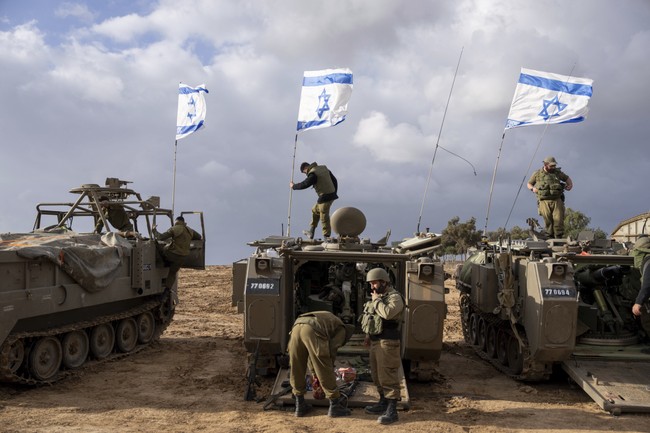
If October 7 changed the way Israel sees Hamas, the Iranian attack over the weekend may have changed the way Hamas sees its leverage now. Their latest proposal for a cease-fire certainly implies it, coming just hours after the massive aerial attack. Hamas has not just rejected the US-drafted proposal for a 10:1 swap ratio but now refuse to swap at all until Israel withdraws from Gaza cities entirely.
Has their leverage really increased that much? Or at all?
Having rejected the terms of last week’s Cairo proposal for a hostage-truce deal, the Hamas terror group on Sunday reportedly presented mediators with a proposal of its own that requires Israel to end the war in the first, six-week phase of a three-phase process. No hostages would be freed in those first six weeks. Rather, all the hostages would be freed over the second and third phases, each of them also lasting six weeks, in exchange for large numbers of Palestinian security prisoners.
The proposal, whose terms are far more demanding of Israel than those put forward by US-coordinated mediators last week, further specifies that, during the initial, six-week phase, displaced Palestinians would be allowed to return unimpeded to northern Gaza, and the IDF would withdraw from all urban centers in the Strip. ….
Hamas announced on Saturday evening that it had submitted its response and was sticking to its original demands for a permanent ceasefire, the complete withdrawal of Israeli troops from Gaza, the return of Palestinians to northern Gaza and other areas, a surge in humanitarian aid and the start of the Strip’s reconstruction.
Yeah, well, don’t hold your breath waiting for approval. Israel had rejected earlier proposals from Hamas where some hostages would get released up front. They aren’t going to go backwards in these talks, especially on hostages, not unless they’re desperate for a way out. Hamas must believe that the Iranian attack has the Israelis panicked enough to be looking for an escape hatch from Gaza.
The Israelis aren’t panicking, however. The Iranians spent decades developing weapons to attack Israel, only to find their options limited to mostly ineffective choices. While they caused a few casualties — no deaths so far, although a little girl is in critical condition — all that hardware did negligible damage. The only substantial outcome of the attack was to force Joe Biden to defend Israel and to strengthen Israel’s ties with Jordan and Saudi Arabia. And prove that Israel’s defense systems are worth funding, too.
Basically, Iran just put on a spectacular fireworks-show of impotence.
So where does that leave Hamas? Israel is champing at the bit to respond to Iran, but it makes little sense to take that step without first settling matters closer to home. With Hamas’ demands becoming more absurd in each round of talks, and with the attack from Iran still fresh in their minds, the time has come for Israel to finish off Hamas and break Gaza out of the grip of Tehran. The best and most immediate revenge against Iran would be to destroy their puppet terror army, end their encirclement strategy in the Middle East, and to discredit them with Gazans for a generation or more.
That seems to be the Israeli government’s conclusion, too. Earlier today, the Israelis called up two reserve brigades for Gaza:
Meanwhile, the military announced late Monday that two reservist brigades would be called up soon for future operations in Gaza, as the Mossad had said that Hamas rejected a ceasefire hostage deal, and the IDF pressed on in the enclave.
The IDF did not specify the nature of those operations, but the military left a vacuum in the Khan Yunis part of southern Gaza when it withdrew from there last Saturday.
Also, the IDF has been expected to start moving toward an eventual operation against four remaining Hamas battalions in Rafah in deep southern Gaza.
If the Israelis are calling up two reserve brigades to go into Gaza, then they’re not contemplating an exit. They are setting the stage for the finale of the October 7 war that Hamas launched by destroying them in Rafah, which they should have executed weeks ago. After the delays caused by their allies and the wasted time in Cairo looking for ways to peacefully free the hostages, the Iranians finally reminded the Israelis of the need to finish the war as quickly as possible — to prepare to deal with the other threats to its existence.
